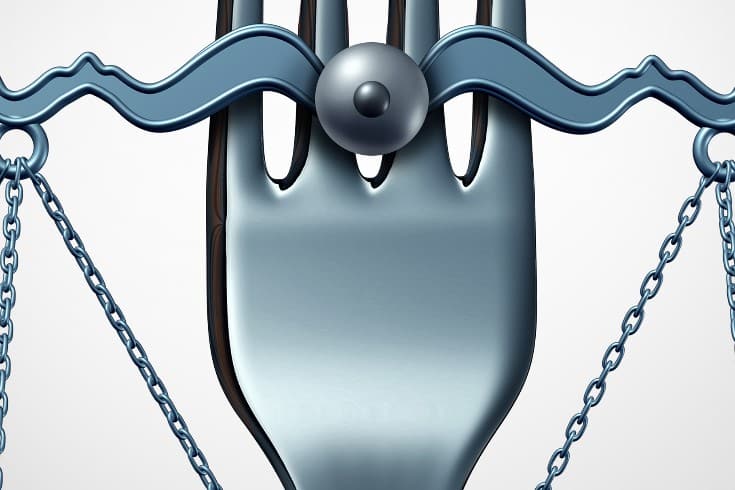Does Sharing Personal Information Online Constitute a Violation of Privacy?

In a separate article on our site titled “Disease Information and Privacy Infringement,” we wrote, “Information about an individual’s illness is privacy-related information and is extremely sensitive.” However, the disclosure of other personal information such as names, ages, addresses, and phone numbers also constitutes an invasion of privacy. Someone who learns your address or phone number may take an interest in you, loiter around your home, or call you. There is also the risk that the disclosed personal information will be collected and used for other crimes such as spam emails and fraudulent money transfers. When such information is disclosed, it is necessary to take immediate action.
https://monolith.law/reputation/disease-information-and-privacy-infringement[ja]
Public Disclosure of Personal Information such as Name, Address, Occupation, and Family Structure

There have been cases where individuals have sought damages and the removal of articles that violated their privacy by publicly disclosing their names, addresses, and occupations on websites, and defamed their reputation by alleging their involvement in criminal activities such as theft and extortion. The plaintiff, who was living with three children, started living with the defendant around the year 2000 (Heisei 12), and their relationship continued until it became problematic. There seemed to be no issues until around 2014 (Heisei 26), when the defendant began publishing articles about the plaintiff on their website.
The articles disclosed the plaintiff’s name, address, occupation, educational background, career history, fact of divorce, children’s names, and alleged that the plaintiff was involved in crimes such as theft, extortion, fraud, and property damage. It was also written that the plaintiff’s liability for damages amounted to 10.4 million yen, that the plaintiff claimed to have a 100% success rate in shoplifting, and that the plaintiff was hiring a lawyer with money stolen from others to cover up these facts.
The court found that there was no sufficient evidence to acknowledge the truth of the article’s content, and there was no evidence to support a reasonable reason to believe that the facts presented were true, thus recognizing the establishment of defamation. In addition, regarding the disclosure of matters that are generally considered to be of a nature that one would not want to be disclosed to others and that can be considered as private matters to be protected as privacy, the court stated:
It is difficult to acknowledge the fact that the plaintiff committed the criminal acts etc. indicated in this article, and it is also impossible to affirm the necessity to disclose the above matters. Therefore, in any case, the said argument does not affect the recognition that the said disclosure infringes on the plaintiff’s privacy.
Tokyo District Court, July 16, 2015 (Heisei 27) Judgment
Thus, this article infringes on the plaintiff’s privacy and is therefore unlawful in this respect.
The court also recognized the violation of privacy and ordered the payment of 800,000 yen in damages and the removal of the article. The private matters disclosed in this case included the plaintiff’s occupation, address, date of birth, alma mater and faculty, occupation of the divorced husband, workplace at the time of marriage, and the names and ages of the three children.
https://monolith.law/reputation/privacy-invasion[ja]
Publicly disclosing one’s address along with their name and family structure is not just a violation of privacy, but it could also lead to serious information leaks that may result in criminal activities such as stalking. The “Zushi Stalker Case” occurred because the perpetrator found out the victim’s new address.
https://monolith.law/reputation/stalker-regulation-law[ja]
Public Disclosure of Divorce Details
There was a case where a former wife sued NHK for allowing her ex-husband to make unilateral statements about the circumstances of their divorce on a television program, which she claimed defamed her and violated her privacy. She succeeded in forcing a correctional broadcast.
In a program titled “Letters of Divorce from Wives – Husbands Confused by Sudden Breakups” aired on NHK’s “Life Hot Morning”, a man with a divorce experience was interviewed with his college-aged son, revealing his face. The broadcast outlined the circumstances leading to the divorce as follows: The couple, who were known in their neighborhood for their good relationship, began to have marital problems about eight years ago when the husband’s work caused him to come home late. The husband tried to explain and persuade his wife, but she refused to understand and only grew more irritated. Despite numerous discussions, the wife’s complaints seemed trivial to the husband. Unbeknownst to the husband, the wife was preparing for divorce and suddenly demanded a divorce. The man agreed to the divorce without understanding his wife’s true feelings. He did not sense any deep meaning in his wife’s messages, which worsened their relationship.
However, in reality, this wife had clearly proposed divorce to her husband nine years before the broadcast, repeatedly requested divorce thereafter, and had been avoiding face-to-face contact at home for about seven years. The husband was aware of the wife’s divorce proposal and its reasons. However, because the husband refused to agree to the divorce, the wife filed for divorce mediation and then left the house. This was the truth. After about a year of divorce mediation, the divorce was finalized. The first instance judgment rejected the claim, so the former wife appealed. The Tokyo High Court recognized defamation and privacy infringement, changed the original judgment, and accepted the claim.
The court acknowledged that the ex-husband had stated that he would not cooperate with the program’s coverage or refuse to appear on the program if the ex-wife was to be interviewed in opposition. From this, it was clear that NHK had unilaterally interviewed only the ex-husband, edited and produced the program without interviewing the ex-wife, and broadcast it without hearing the ex-wife’s opinion. Therefore, it could not be said that NHK had fulfilled its obligation to exhaust possible coverage and to be careful not to infringe on the ex-wife’s honor and privacy.
The progress and cause of divorce belong to extremely private matters for the parties involved, and usually, the recognition or argument of the parties involved does not necessarily coincide, and often sharply conflicts. The divorce of an anonymous private person like the appellant and his wife cannot be said to be a legitimate concern of society. Therefore, when broadcasting this, it should either adopt a method that does not risk identifying the parties involved, or if not, even if it is a public television program, it should obtain the consent of the parties involved, exhaust interviews from both sides, and strive to grasp the truth as much as possible. It is clear that the appellant failed to make such efforts.
Tokyo High Court Judgment, July 18, 2001 (Heisei 13)
The court recognized defamation and privacy infringement and ordered a payment of 1.3 million yen. In addition, based on Article 4 of the Japanese Broadcasting Law, which states, “When it is found to be untrue, a correction or cancellation broadcast must be made within two days from the day it was found, by a broadcasting facility equivalent to the one that made the broadcast, in an appropriate manner,” a correctional broadcast was ordered.
Even in television programs, if you have many problems on your side that led to divorce, repeatedly engage in problematic behavior or violence during the process, and write articles on your blog as if the problem lies only with your spouse without touching on any of these issues, there is a high possibility that you will be accused of privacy infringement. The progress and cause of divorce are extremely private matters for the parties involved.
https://monolith.law/reputation/scope-of-privacyinfringement[ja]
Public Disclosure of Background, Personality, and Divorce Circumstances

In April 1987, the former branch manager of Itochu Corporation’s Los Angeles branch went missing in Los Angeles. In December of the same year, the Los Angeles Police Department arrested the plaintiff, who was the wife of the branch manager, and a person named A on suspicion of murdering the former branch manager. However, the plaintiff denied the allegations and was released a few hours later, and A was also released a few days later. In January of the following year, the Los Angeles Police Department arrested B, a friend of A, as a suspect in the murder of the former branch manager. They granted B so-called criminal immunity, extracted a confession that he had killed the former branch manager in collaboration with A, and based on B’s testimony, they discovered the body of the former branch manager buried near Malibu Canyon Road.
The Los Angeles County District Attorney’s Office then changed the charge against the plaintiff from “murder” to “accessory after the fact” (equivalent to “destruction of evidence” or “harboring a criminal” in Japan), but later dropped the criminal prosecution.
From around March 1988, Japanese weekly magazines began to cover this incident. Judging from the current point of view, it was a storm of defamation to the extent that one would think, “How could they write such a thing?” However, Japanese weekly magazines seemed to be convinced that the plaintiff was guilty and would soon be arrested. However, it is unclear what they based this judgment on.
Defamation without much information is not permissible and is dangerous. The repeated defamation on the Internet may also serve as a reference for what kind of responsibility could be questioned.
The plaintiff sued for defamation, invasion of privacy, and violation of portrait rights, and filed a lawsuit against Shinchosha (Weekly Shincho, Focus), Mainichi Newspapers (Sunday Mainichi), Shogakukan (photo weekly magazine “Touch”), Asahi Shimbun (Weekly Asahi), Fusosha (Weekly Sankei), and Bungeishunju (Weekly Bunshun). The court recognized defamation, invasion of privacy, and violation of portrait rights in part of the articles and accepted the claim for damages. (Tokyo District Court, January 31, 1994)
The court, for example, regarding “Focus,” which wrote articles with headlines such as “Madness! ‘Old Aristocratic Princess’ Husband Murder” and “In the end, the criminals were the estranged wife (51) and eldest son (21) that the Los Angeles Police Department had been marking,” recognized defamation, stating, “They claim that the plaintiff is the murderer of her former husband, but there is no evidence to support this, and there was no reasonable reason to believe that she was the murderer.” The court also recognized that “the description of the divorce dispute is, as the plaintiff claims, a matter that would be desired to be kept secret based on the sensitivity of ordinary people, and it invades the plaintiff’s privacy.”
Also, the photos of the plaintiff that were published, one was a photo of the plaintiff walking in front of her home after being released from her first arrest, and the other was a photo of the plaintiff in a swimsuit when she was selected as “Miss Plain” and published in the magazine “Plain” in December 1956. The court recognized that the photo of the plaintiff in a swimsuit violated her portrait rights.
In the end, the information that was infringed upon was the plaintiff’s background, the circumstances of her divorce, suspicion of a crime, personality, etc., and depending on the content and degree of the infringement,
- Shinchosha (Weekly Shincho, Focus) was awarded 2 million yen
- Mainichi Newspapers (Sunday Mainichi) was awarded 700,000 yen
- Shogakukan (photo weekly magazine “Touch”) was awarded 400,000 yen
- Asahi Shimbun (Weekly Asahi) was awarded 300,000 yen
- Fusosha (Weekly Sankei) was awarded 500,000 yen
- Bungeishunju (Weekly Bunshun) was awarded 600,000 yen
in damages.
Conclusion
It is inevitable that such careless investigations and one-sided conclusions in reporting will become a problem. There may have been a judgment that it doesn’t matter if it becomes a problem as long as it sells, but it seems that the heated competition among photo weekly magazines for privacy infringement during their heyday is now being conducted on the internet as a battle of defamation. When personal information of a private nature, such as the name, address, divorce process and cause, origin, personality, family structure, suspicion of crime, income, and personal relationships, as mentioned here, is disclosed on the internet, it is necessary to respond promptly.
Category: Internet





















